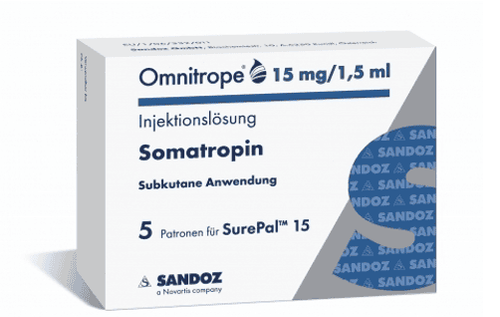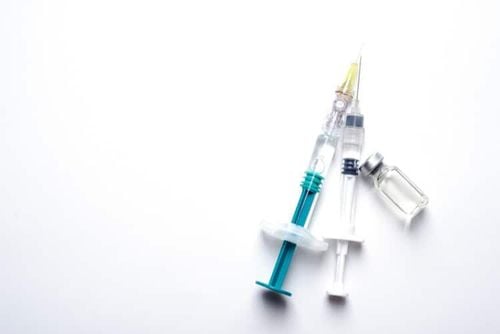This is an automatically translated article.
Factors that contribute to height growth include genetic factors which account for 60 to 80% and some environmental factors, such as nutrition and exercise, which often account for the remaining proportion.
1. Maintain a Balanced Diet
From age 1 to puberty, most people gain about 2 inches in height each year. During puberty, it is possible to grow 4 inches per year. However, everyone grows taller at a different rate.
For girls, this dramatic growth usually begins early in the teen years. For boys, there is often a sudden increase in height at the end of adolescence.
Usually height stops or grows less after you go through puberty. This means that as an adult, you are not likely to gain much height.
However, there are some things we can do during adolescence to ensure maximum potential for growth. And should continue these things into adulthood to promote overall health and maintain height
During the adult years if a well-balanced diet is available, which means the body gets all the nutrients nutrition needed.
A balanced diet should include:
Fresh fruits Clean vegetables Whole grains

Protein Dairy Products Limit or avoid foods that contain: Sugar Trans fats Saturated fats If you have an underlying medical condition that affects bone density. Let's increase the amount of calcium for the body. Experts recommend that women over 50 and men over 70 consume 1,200 milligrams (mg) of calcium per day.
Vitamin D also promotes bone health. Common sources of vitamin D include tuna, fortified milk, and egg yolks. If your body is not getting enough vitamin D in your diet, you need to supplement to meet the daily requirement.
Trắc nghiệm: các chỉ số cần chú ý về sự phát triển thể chất của trẻ
Chiều cao, cân nặng của bé ở từng giai đoạn nên là bao nhiêu là bình thường, bao nhiêu là bất thường? Cùng ThS.BS Ma Văn Thấm điểm lại xem bạn đã nắm được các chỉ số phát triển thể chất của bé chưa nhé!The following content is prepared under supervision of Thạc sĩ, Bác sĩ y khoa, Ma Văn Thấm , Nhi , Phòng khám Đa khoa Quốc tế Vinmec Dương Đông(Phú Quốc)
2. Use supplements with caution
There are only a few cases where supplements may be suitable to increase height in children and prevent shrinkage in older adults.
For example, if the body has a condition that affects the production of human growth hormone (HGH), your doctor may recommend a supplement containing synthetic HGH. Additionally, older adults may want to take vitamin D or calcium supplements to reduce their risk of osteoporosis.
In all other cases, supplements that are advertised as helping to increase height should be avoided. Because when the body's growth factors become fused together, there is no chance that the supplements can increase height no matter what the supplement label advertises.

3. Get enough sleep
Occasional sleep loss will not affect height in the long run. But if during adolescence, you regularly slept less than the required amount of sleep, it could lead to other complications.
This is because the body releases HGH during sleep. The production of this hormone takes place only during sleep. To ensure, the bedtime regime is regulated as follows:
Infants up to 3 months sleep 14-17 hours a day Infants 3-11 months old get 12-17 hours Toddlers 1-2 years old get 11-14 hours Young children 3-5 years old get 10-13 hours Children 6-13 years old get nine to 11 hours Teens 14 to 17 years old get eight to 10 hours Adults 18-64 seven to nine hours old Seniors 65 years and older get seven to eight hours
4. Stay active
Regular exercise has many benefits. It strengthens muscles and bones, helps you maintain a healthy weight, and promotes HGH production.
Children at school should get at least one hour of exercise every day. During this time, focus on: Strength-building exercises, such as push-ups or sit-ups. Flexibility exercises, such as yoga
Aerobic activities, like playing cards, jumping rope or cycling. Exercising in adulthood also has its benefits. In addition to helping maintain overall health, it may also help reduce the risk of osteoporosis. This condition occurs when bones become weak or brittle, leading to a loss of bone density. This can cause the height to decrease. To reduce your risk, try walking, playing tennis, or doing yoga a few times a week.
In order for children to be healthy and develop well both physically and mentally, it is necessary to have a nutritious diet in terms of quantity and quality balance. If children are not provided with adequate and balanced nutrients, it will lead to diseases of excess or lack of nutrients that adversely affect the comprehensive development of children in terms of physical, mental and motor skills.
Children who do not eat properly are at risk of micro-mineral deficiency causing anorexia, growth retardation, malabsorption,... If they notice the above signs, parents should supplement their children with products. The supplement contains lysine, essential micro-minerals and vitamins such as zinc, chromium, selenium, and B vitamins to help fully meet the nutritional needs of children. At the same time, these essential vitamins also support digestion, enhance nutrient absorption, help improve anorexia, and help children eat well.
Parents can learn more:
Signs of zinc deficiency in children
Micronutrient deficiency and failure to gain weight in children
Please dial HOTLINE for more information or register for an appointment HERE. Download MyVinmec app to make appointments faster and to manage your bookings easily.
References: fda.gov; healthline.com













